World Champion Austria 2024 - The Yearbook on the business location, published by medianet Verlag, is dedicated to the current situation of Austrian companies in a special way. For the second time, author Alexander Haide has asked three dozen CEOs of Austrian hidden champions for an interview. The topics range from biotech companies and the manufacturer of the world's most efficient heat pump in its class to the economic balance sheet of the Salzburg Festival and the logistics giant Rail Cargo. Interviews with economic experts and politicians round off the spectrum. The result is a good overall picture of the economic situation of Austrian companies, from start-ups to large corporations.
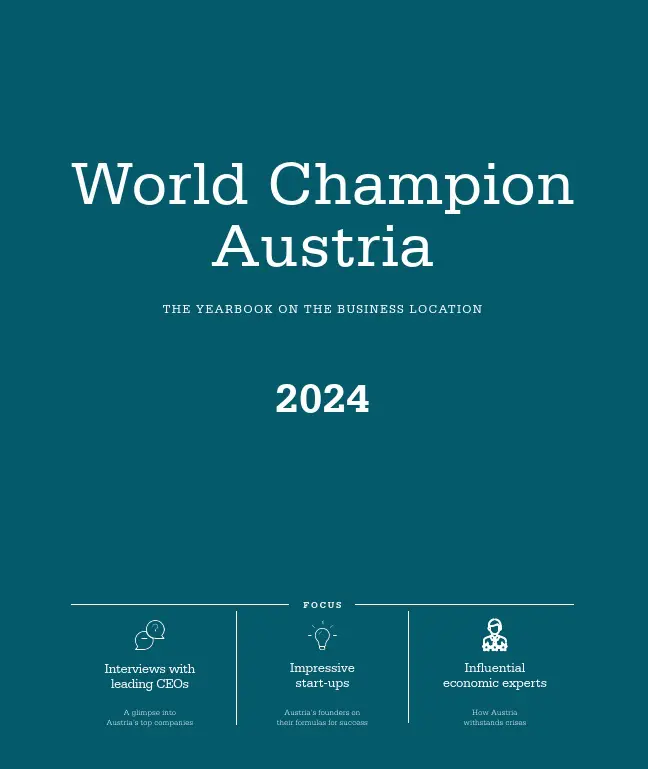
What makes these companies the spearheads of their industries, what are the secrets of their success and what challenges do they see for the future? The yearbook on the business location answers these questions.
Did you know that the Tyrolean tourism company Feratel not only has more than 1,000 weather cameras in 14 countries, but is also one of the most important service and marketing providers in domestic tourism?
Also in Tyrol, two young engineers have independently developed a new generation of heat pumps that are among the most efficient in their class worldwide. The developer of the Lambda heat pump explains the successful concept.
The new head of Austrian advertising, Astrid Steharnig-Staudinger, comes out as an enthusiastic Austria advertiser. She reveals how she wants to position Austrian tourism in the World Champion interview.
With its AI system deepassist, the Viennese company Deepsearch GmbH has made it into the top five in the world. Founder and CEO Roland Fleischhacker reveals where AI has long been used in everyday life, what it can - and cannot - do.
Three graduates of Vienna University of Technology have put a bioreactor into operation in Meidling. The results of Novoarc's research should replace the syringe with a tablet for certain medications in the foreseeable future.
These are just five examples from a total of 36 interviews that take us on an exciting and interesting journey through Austria's economy, spiced up with one or two very personal comments from the CEOs. Spoiler: The mood in the country is not quite as bad as many people think.
AI has come to stay
Talk on the presentation by world champion Austria provides answers on how artificial intelligence is changing our working lives
Following the presentation of World Champion Austria on November 17, 2023, a captivating discussion took place at the Austrian Trade Association in Palais Eschenbach. The focus was on the question of how much artificial intelligence (AI) will change Austrian industry. The panel included prominent figures such as Bettina Resl from Novartis, Roland Fleischhacker from Deepsearch, Maximilian Scherr from Arthur D. Little and Walter Huemer from the Huemer Group. The talk was moderated by Sabine Bretschneider, editor-in-chief of Weltmeister Österreich.
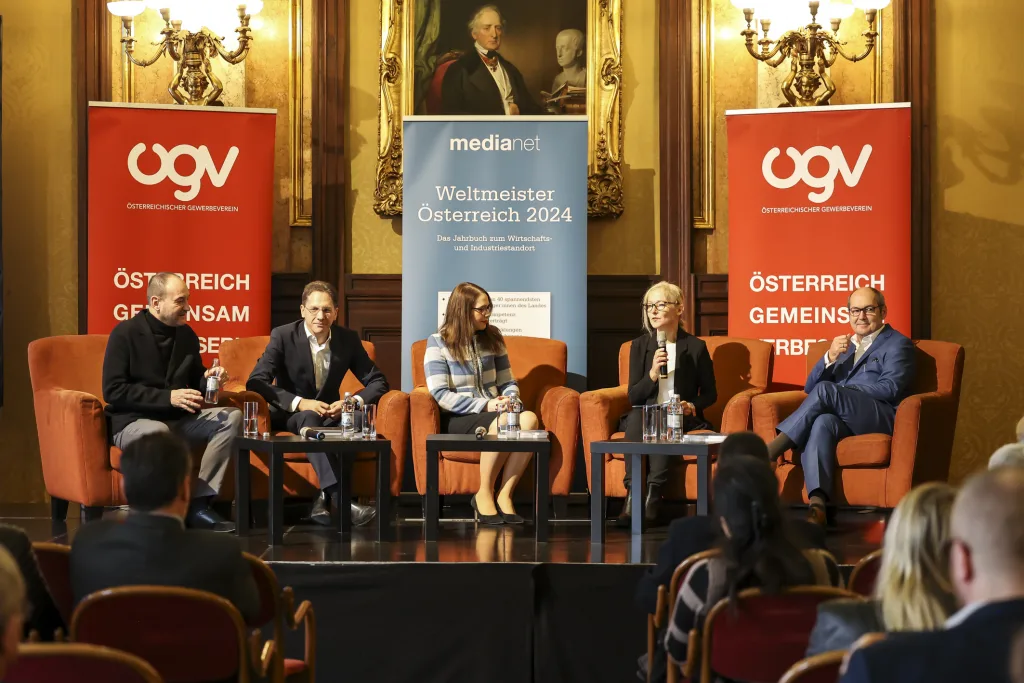
Roland Fleischhacker opened the discussion by recognizing that there are numerous technologies in AI that are based either on correlations or on causality and logic. He noted that ChatGPT, for example, is purely statistical and lacks in-depth understanding. This means that technological developments are often initially overestimated and later underestimated again.

Maximilian Scherr expressed his concern that Austria is at risk of being left behind as a business location. He emphasized that not everything that is artificial intelligence is really intelligent. As a specialist in the field of cybersecurity, he warned of the dangers of using AI in the area of cybercrime. In his opinion, Austria lacks the necessary determination to seriously engage with these new technologies. In general, Austria has too little bite, people are leaning back and resting on their laurels. A mindset for basic digital education would be essential.
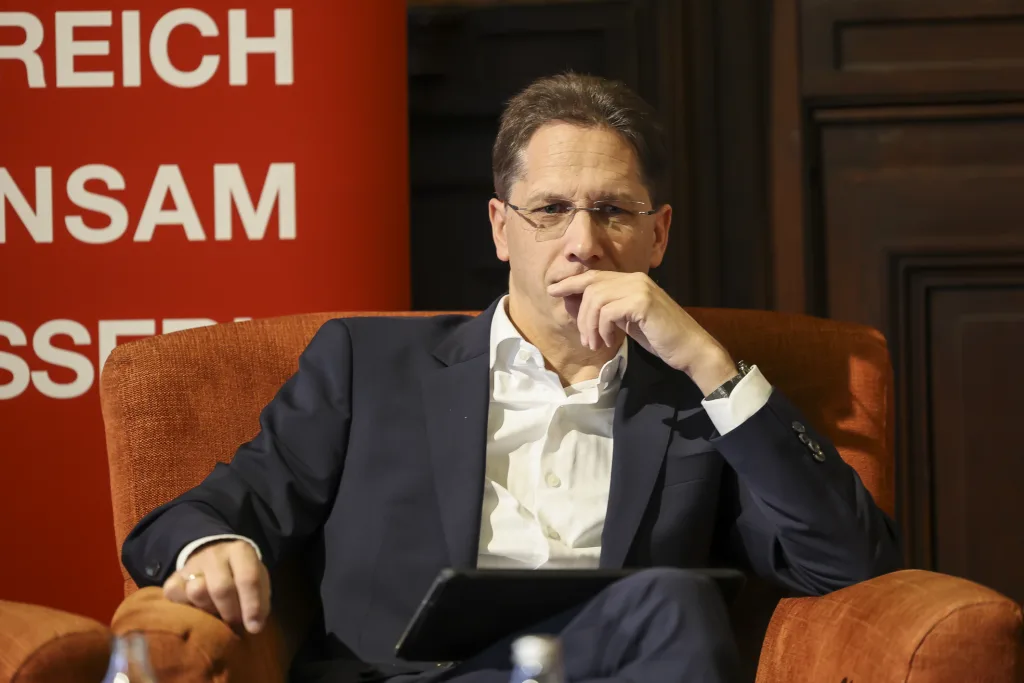
Bettina Resl shared her experiences: At Novartis Austria, around 3000 employees are in contact with AI every day. Processing large data sets makes it possible to bring medicines to market faster. She emphasized the importance of digital education, both in schools and universities as well as in the corporate environment.
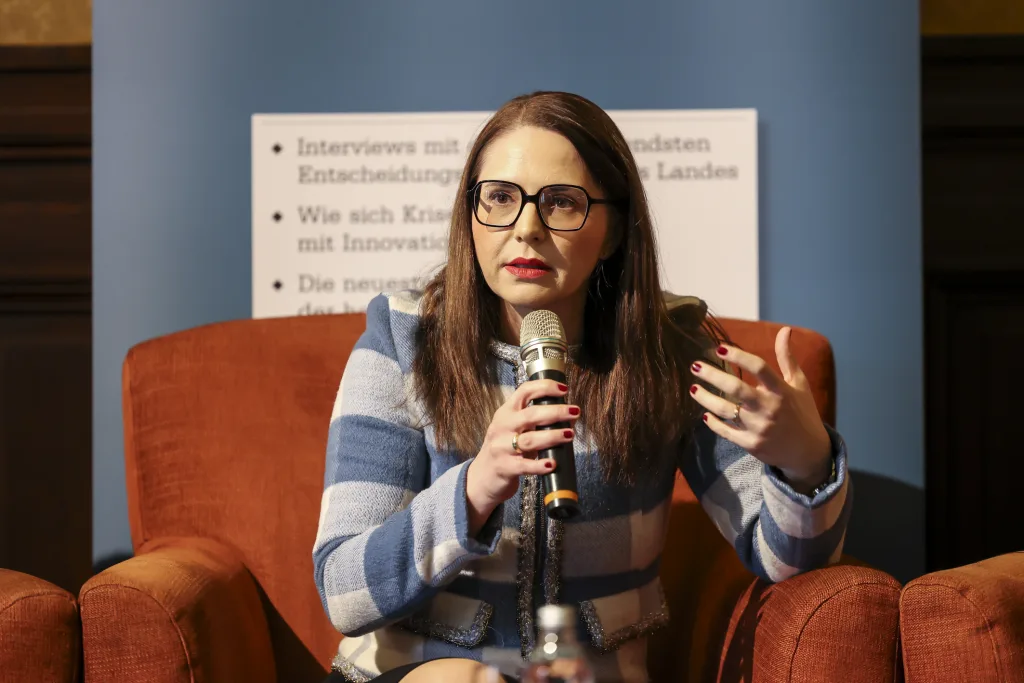
Walter Huemer pointed out that successful ways of working today depend heavily on teamwork and that AI is another member of this team. He referred to countries such as Kosovo, where the average age of the population is 27. The greatest focus there is on IT in education. There will be many other technologies in the future. We are only seeing the tip of the iceberg today and it follows that other skills will be needed in the future.

Bettina Resl added that AI does not endanger jobs, but reveals the lack of workers who can carry out the workflows and processes. Robots, for example, require people to operate them and Maximilian Scherr referred to the support of AI in medicine. He emphasized that experienced dermatologists achieve the best results quickly and qualitatively. However, AI helps young, inexperienced colleagues enormously to achieve similar results. Logic and quality always count here. He called for increased investment in digital training and criticized the fact that other countries such as Saudi Arabia are investing billions in this area. In Austria, it is only a few million. In this country, the agricultural sector still receives more funding than AI.
Roland Fleischhacker emphasized that AI could help staff to find solutions more quickly. He explained how AI could help to close the over-age gap in management levels, for example, and Walter Huemer also referred to an example where mediocre pupils learn to understand the subject matter better thanks to AI, because it is explained better so that thirteen-year-olds can understand it. Courage is needed in education. The need to train teachers and educators appropriately, starting in kindergarten, was emphasized. The recent amendment to allow apprenticeships and master craftsmen to study was also welcomed.
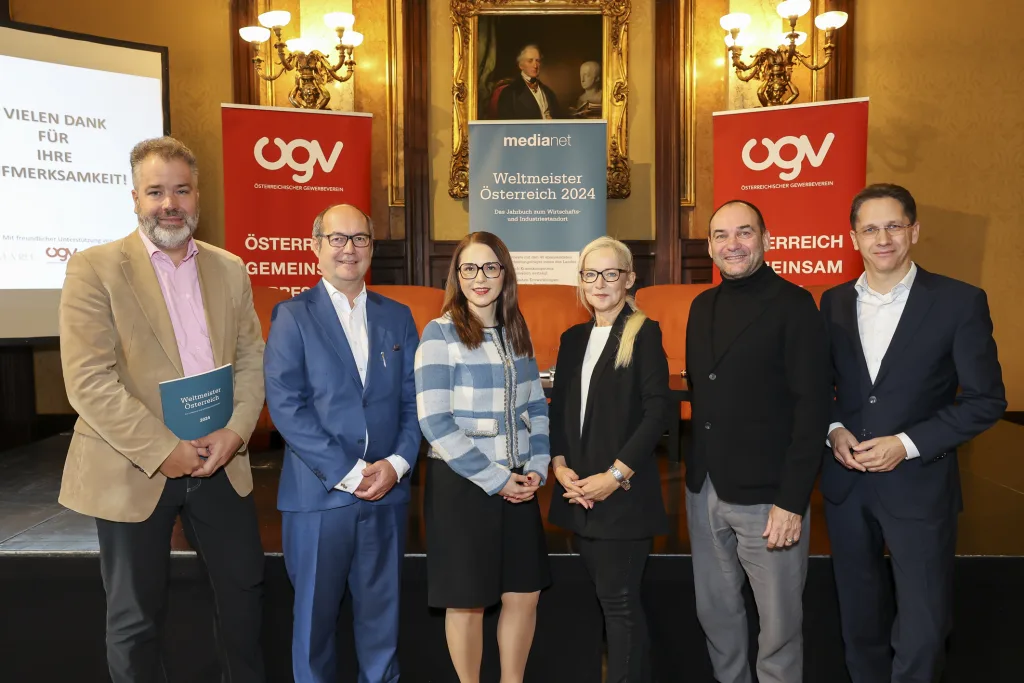
The discussion concluded with the call for five key points for training: Curiosity, courage to be transparent and compare where we stand, perseverance and also learning to fail. The fun of continuous learning was emphasized as a crucial attribute for the future.
Overall, the talk showed that the challenges posed by AI will have to be met with a stronger focus than before. A rethink in educational institutions and companies is essential. Because the competition is somewhere else and we in Austria are called upon to accept the given challenges accordingly.
You can find more photos at https://www.apa-fotoservice.at/galerie/35088/, the video is available here and the interviews here.
Technical details of the book
Authors: Sabine Bretschneider & Alexander Haide
Scope: 196 pages
Price: € 27,50
ISBN: